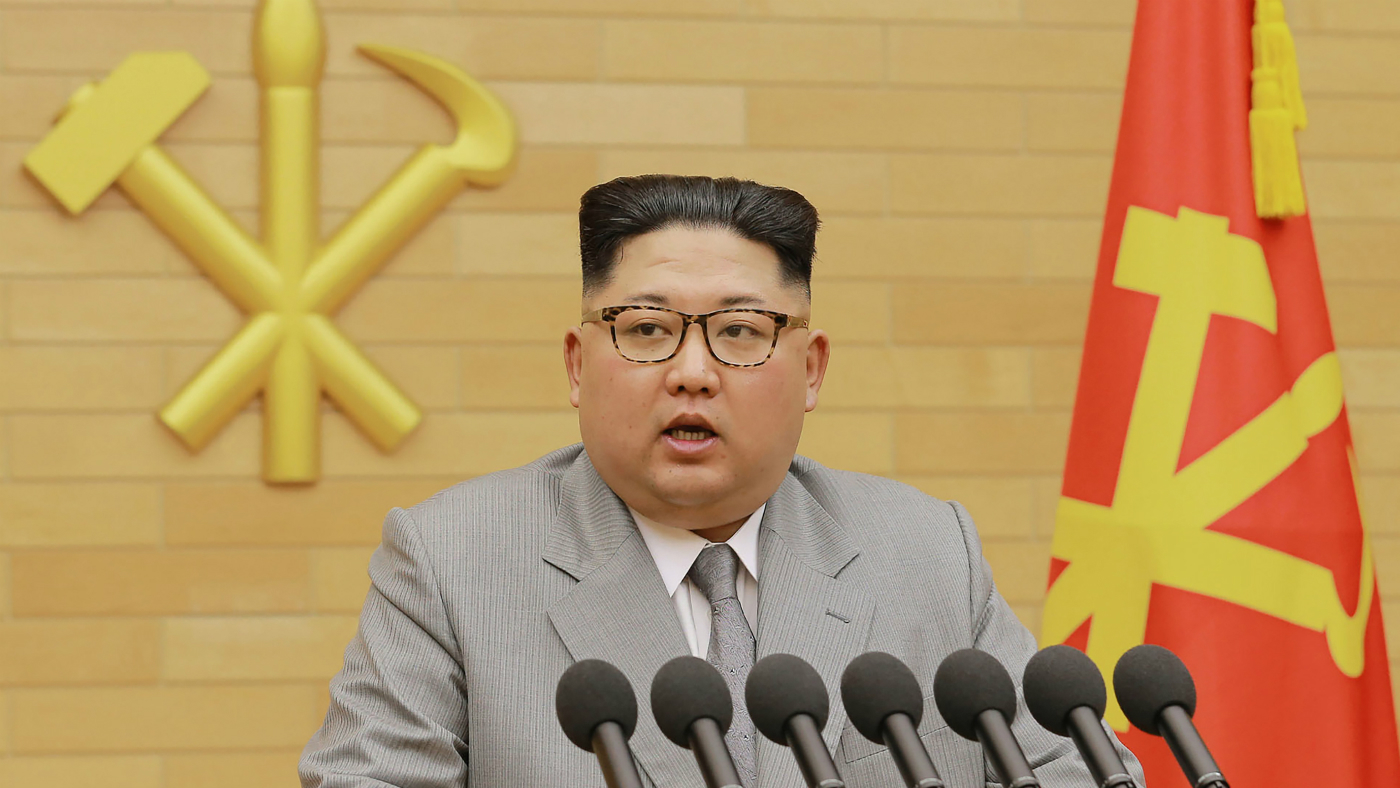North Korea talks: olive branch or cynical ploy?
Kim Jong Un may be trying to create tension between South Korea and the US

A free daily email with the biggest news stories of the day – and the best features from TheWeek.com
You are now subscribed
Your newsletter sign-up was successful
North Korean leader Kim Jong Un used his New Year address to offer an “olive branch” to South Korea, saying he was prepared to send a delegation of athletes to next month’s Winter Olympics in the South Korean county of Pyeongchang.
CNN reports that Kim “struck an unusually conciliatory tone”, declaring his wish “for peaceful resolution with our southern border”.
But his speech also contained thinly veiled threats, noting that “the entire United States is within range of our nuclear weapons, a nuclear button is always on my desk”.
The Week
Escape your echo chamber. Get the facts behind the news, plus analysis from multiple perspectives.

Sign up for The Week's Free Newsletters
From our morning news briefing to a weekly Good News Newsletter, get the best of The Week delivered directly to your inbox.
From our morning news briefing to a weekly Good News Newsletter, get the best of The Week delivered directly to your inbox.
The New York Times suggests that the North Korean leader’s comments may be part of a “canny new strategy to initiate direct talks with South Korea in the hope of driving a wedge into its seven-decade alliance” with the US.
And the plan may be working.
South Korean President Moon Jae-in called Kim’s offer a “groundbreaking” chance to improve relations, The Guardian reports. South Korea has already suggested 9 January as a possible meeting date for high-level talks.
Kim has yet to respond.
A free daily email with the biggest news stories of the day – and the best features from TheWeek.com
Youngshik Daniel Bong, a research fellow at Seoul’s Yonsei Institute for North Korean Studies, told the BBC that “North Korea usually ignores South Korea, maintaining the position that as a ‘nuclear power’ it will deal with the US on its own”. According to Bong, “it appears that by engaging the South, he hopes to create an estrangement between South Korea and the US”.
-
 How to Get to Heaven from Belfast: a ‘highly entertaining ride’
How to Get to Heaven from Belfast: a ‘highly entertaining ride’The Week Recommends Mystery-comedy from the creator of Derry Girls should be ‘your new binge-watch’
-
 The 8 best TV shows of the 1960s
The 8 best TV shows of the 1960sThe standout shows of this decade take viewers from outer space to the Wild West
-
 Microdramas are booming
Microdramas are boomingUnder the radar Scroll to watch a whole movie
-
 Will increasing tensions with Iran boil over into war?
Will increasing tensions with Iran boil over into war?Today’s Big Question President Donald Trump has recently been threatening the country
-
 Corruption: The spy sheikh and the president
Corruption: The spy sheikh and the presidentFeature Trump is at the center of another scandal
-
 Rubio boosts Orbán ahead of Hungary election
Rubio boosts Orbán ahead of Hungary electionSpeed Read Far-right nationalist Prime Minister Viktor Orbán is facing a tough re-election fight after many years in power
-
 Greenland’s capital becomes ground zero for the country’s diplomatic straits
Greenland’s capital becomes ground zero for the country’s diplomatic straitsIN THE SPOTLIGHT A flurry of new consular activity in Nuuk shows how important Greenland has become to Europeans’ anxiety about American imperialism
-
 Epstein files topple law CEO, roil UK government
Epstein files topple law CEO, roil UK governmentSpeed Read Peter Mandelson, Britain’s former ambassador to the US, is caught up in the scandal
-
 Iran and US prepare to meet after skirmishes
Iran and US prepare to meet after skirmishesSpeed Read The incident comes amid heightened tensions in the Middle East
-
 Which way will Trump go on Iran?
Which way will Trump go on Iran?Today’s Big Question Diplomatic talks set to be held in Turkey on Friday, but failure to reach an agreement could have ‘terrible’ global ramifications
-
 Israel retrieves final hostage’s body from Gaza
Israel retrieves final hostage’s body from GazaSpeed Read The 24-year-old police officer was killed during the initial Hamas attack